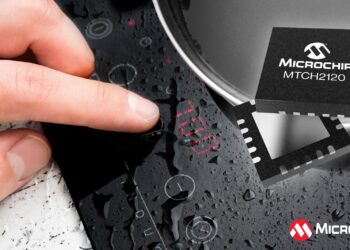Ambature, Inc., a private company specializing in the design of superconducting materials and quantum devices, has announced a significant achievement in its labs located in Waterloo, Ontario. The company has successfully grown its high-temperature superconducting material, a-axis YBCO (Yttrium Barium Copper Oxide), on silicon.
This breakthrough is anticipated to simplify the fabrication of Josephson junctions, which are considered the superconducting counterparts to transistors, within semiconductor foundries. According to Mitch Robson, Ambature Lead Scientist, “The recent high-quality growth of our material on silicon opens up the semiconductor industry to Ambature. Our superconducting sensors and computer processors can be fabricated at scale using existing equipment in semiconductor foundries.”
The semiconductor industry has been actively exploring new materials and architectures to address the limitations of existing CMOS (Complementary Metal-Oxide-Semiconductor) technology. Ivan Sutherland, a CMOS pioneer, believes that superconducting digital circuits could present a significant opportunity for the future of computing. “The nation that best seizes the superconducting digital circuit opportunity will enjoy computing superiority for decades to come,” he stated, as reported by The New York Times.
Ambature’s breakthrough is particularly noteworthy as it addresses cooling challenges associated with low-temperature superconductors, making the technology more feasible for applications like data centers. Ron Kelly, Ambature CEO, commented, “This leap forward allows us to accelerate our plans to commercially scale our technology and become the bridge between semiconductor and superconductor electronics.”
Superconducting materials and circuits offer inherent benefits for various industries, including telecommunications, medical diagnostics, autonomous vehicles, IoT, data centers, and AI. Ambature’s integration of superconductors with silicon, commonly referred to as “CMOS+X,” aligns with the industry trend of leveraging new materials while capitalizing on the established silicon manufacturing capabilities.
With two successful means of integrating with silicon – heterogeneously via thermocompression bonding for chiplets and epitaxially via silicon substrates with buffer layers – Ambature positions itself to support licensees in developing advanced sensors and computers for diverse applications.








